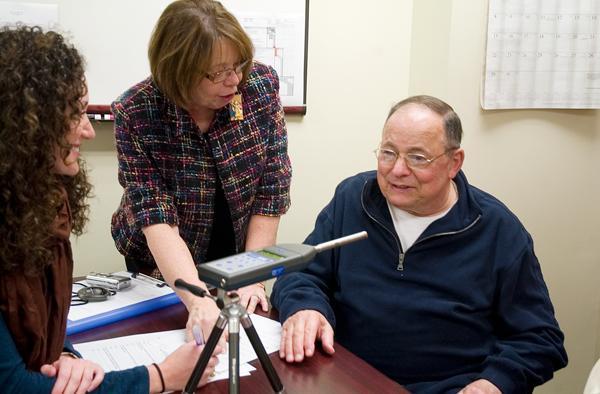Advancements in medical care, technology and life-saving operations are allowing people today to live longer than in the past. That’s why LSU’s Life Course and Aging Center is committed to identifying the keys to successful aging and educating the public about these issues.This field of study is particularly relevant today because the older population is increasing at a profound rate, said Priscilla Allen, social work associate professor and LCAC associate director. “One-fifth of us will be 65 or over by 2020, and the fastest-growing population are those 85 and above,” Allen said. “It’s an interesting demographic reality.”Katie Cherry, psychology professor and executive director of the LCAC, said 2011 marks the year when the Baby Boomers, the largest segment of the population, turn 65 years old. “With people living longer and having fewer children, the birth rate is right around replacement,” Cherry said. “We need more programs for older people.”The LCAC originated for that exact purpose. The multi-disciplinary group of faculty members started meeting in 1999, but officially achieved a center status in 2003 from the LSU Board of Supervisors and Louisiana Board of Regents. Both entities renewed the LCAC on Aug. 26 and granted it a five-year continuation which runs through 2014.Cherry said the continuation is a mark of statewide legitimacy.”It’s a huge mark of recognition not only by the University, but by the brain trust of the state,” Cherry said.Todd Pourciau, LCAC director of research, said the LCAC is not an actual building but more of a virtual center.”This is the standard concept for this type of research enterprise,” Pourciau said. “It allows faculty to move in and out of the group as they take on different projects.”Cherry said the group communicates electronically and meets once a month while smaller groups collaborate on research and projects of mutual interests.The LCAC is a multi-disciplinary entity that includes 51 University professors from a wide spectrum of fields like psychology, education, sociology, social work, kinesiology, nutrition and others, Pourciau said.Cherry said professors worked alone in their labs prior to the center, but the LCAC provides a mechanism to facilitate cross-disciplinary collaborations to enhance their research goals.”What makes the LCAC unique is that we all have a common denominator of life span and development as the thread that pulls us all together,” Cherry said.Cherry is conducting research as part of the Louisiana Healthy Aging Study with the program’s project director, Michal Jazwinski.”We are looking at determinants of longevity and healthy aging from a genetic, biological and psychosocial perspective,” Cherry said.The LCAC has tested 869 people at Pennington Biomedical Research Center since 2002, using a battery of tests to study everything from genetics to metabolism, retention of cognitive function and physical function.Cherry said the studies suggest both biological and psychosocial factors are important for healthy aging.Neila Donovan, communication disorders professor and LCAC researcher, said her research goal is looking at how the elderly define communicative effectiveness. In her study, she matches people with Parkinson’s disease with healthy participants of the same age without neurological or speech problems and compares answers about effective communicating. Donovan said the result was that both groups define communicative effectiveness in the same way.”People recognize problems with finding the words they want, even when they don’t have cognitive difficulty,” she said. “We are trying to develop a screening instrument we can use to identify with people who may be having enough communication problems that it’s starting to affect their independence.”Allen said the average life expectancy is currently around 81 and is expected to increase, and the LCAC’s research efforts aim to make this journey a smooth one.
– – – -Contact Sarah Eddington at [email protected]
LCAC studies successful aging
December 1, 2009

Whitney Hebert, student therapist, and Neila Donovan, principal investigator and communication disorders professor, conduct Parkinson’s research at Pennington.


